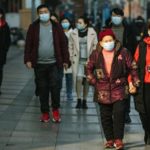Long-term investment strategy in China will not change
Foreign enterprises in China, while busy adjusting short-term business plans amid the novel coronavirus outbreak, have stressed their confidence in the world’s second-largest economy, noting that the virus and temporary difficulties will not change their long-term investment strategies in China.
Foreign firms have reacted to the spreading virus. South Korean multinational conglomerate Samsung said it will temporarily shutter its flagship experience store in Shanghai from Sunday to February 9 after “prudent consideration” and “advice from health experts,” according to a post published on the store’s official WeChat account on Sunday.
The move came after US tech giant Apple announced it will close its corporate offices, stores and contact centers in the Chinese mainland through February 9 as the coronavirus spreads. The company’s website continues to work for customers in China.
Moreover, Disney, Tesla and some foreign airlines are suspending services, temporarily shutting factories and rescheduling flights in response to the virus.
“We have been urged to cut all ‘non-essential’ business travel and work at home until the situation calms down,” Tan Wen, a staff member in the Beijing office of a leading US tech company, told the Global Times on Monday.
Some are calculating losses. After canceling three sailings through February 8, global cruise vacation company Royal Caribbean said in a statement on its website that it estimates the outbreak will hurt its 2020 financial results by 10 cents per share.
It is possible that the economic cost this time around will be slightly higher than that of SARS, due to the China’s increased global GDP weight and the now-stronger role of private consumption in China, the European Chamber of Commerce said in a statement sent to the Global Times on Monday.
However, despite temporary losses, global giants are voicing their confidence in China, and noting that the virus will not alter their long-term strategies in China’s market.
“We are closely monitoring the development of the epidemic in order to formulate corresponding adjustment measures. But in the long run, BMW’s investment strategy in China will not be affected,” the German car maker told the Global Times in a note on Monday.
“China is making every effort to respond to and resolve the virus. Not only has it launched a number of prevention and control measures, but vaccine research is also being accelerated. We believe that all difficulties are temporary. China will soon win this battle,” South Korean multinational automotive manufacturer Hyundai Motor said in a statement sent to the Global Times on Monday.
“The development of Hyundai Motor in the Chinese market will not be affected, and we remain confident in the future,” said the firm.
With stronger communication, increased knowledge of how to control viral outbreak, greater preparedness in terms of resources and people, and deeper ties with international groups like the World Health Organization, the European Chamber is confident that this outbreak can be contained much quicker, said the EU Chamber of Commerce in China.
Foreign companies who have had significant footprints in China for years have also actively joined the country’s battle against the viral outbreak.
For instance, Hyundai Motor has donated 5 million yuan ($712,270) of medical supplies and 10 million yuan in cash to Wuhan, the epicenter of virus, said the company.
Swedish telecom company Ericsson has helped build communications base stations in Huoshenshan Hospital in Wuhan, which was constructed in just 10 days to battle the novel strain of coronavirus in the city.
About 300 robots assemble vehicles at a Beijing Hyundai Motor factory in Cangzhou, North China’s Hebei Province in February 2017. Photo: VCG


